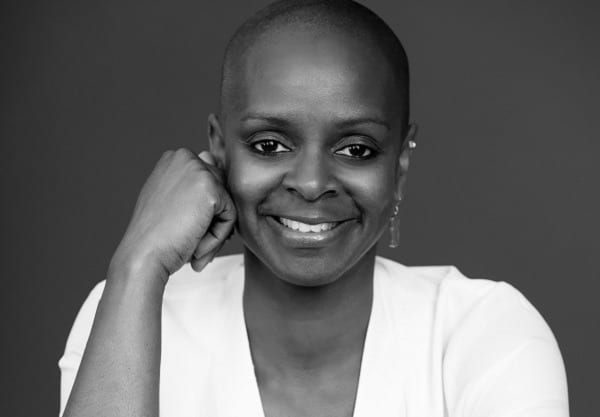Women’s Agenda is supporting this event once again as an online media partner by sharing insights, advice and stories from some of the awesome women involved.
When it comes to women’s empowerment and building up women leaders, Kemi Nekvapil has certainly carved out space. As an executive and personal coach, speaker and author who has worked in the wellness industry for more than 23 years, Kemi has become a respected and dynamic commentator on women’s wellbeing and empowerment.
Having studied leadership and purpose at the Gross National Happiness Centre in Bhutan, trained as a yoga teacher in India and with a 23-year yoga and meditation practice under her belt, Kemi understands that there is a process for meaningful connection to ourselves, our work, our families and communities.
The YWCA Canberra team caught up with Kemi ahead of the sold-out She Leads Conference to discuss what it means to take space, the importance of developing women leaders, and the enjoyment of endurance running.
Working in a field where you are constantly giving, how do you make space to grow your work and yourself?
I am very intentional about giving back to myself because I know that I serve others best when I also serve myself. Setting and keeping boundaries is very important for me, as is ongoing personal and professional development.
A lot of your work is around developing and supporting the wellbeing of women leaders, what does this work look like and why do you think it’s important?
The world has never needed female leadership in the way it does now, and if we are to lead as ourselves in a sustainable way, we need to look after ourselves.
How do you model this behaviour yourself?
As I mentioned before, boundaries are very important to me, and so is my alone time. I am someone who identifies as an introvert.
Sometimes people think introverts are shy and they don’t like people. I do like people, but I recharge away from people.
I spend a lot of time on my own so that I can recharge; then I can be fully present in the work I am doing and authentically engaged with others.
Creating space for myself makes me a better coach, speaker, mother and wife – having time alone makes me better at everything.
When we talk about mental health and wellbeing a lot of the onus is put on the individual to manage their emotions, workloads and stress levels appropriately. But what steps can leaders or organisations take to better support their teams to prioritise their mental health?
It is vital for organisations to create psychologically safe workplaces.
I recently spent time in Texas training with Dr Brene Brown as a certified Dare to Lead™ facilitator. I now work with organisations to begin this uncomfortable but much-needed work.
One of my favourite quotes from her book ‘Dare To Lead’ is “Leaders must either invest a reasonable amount of time attending to fears and feelings, or squander an unreasonable amount of time trying to manage ineffective and unproductive behaviour.”
Yes, we are all responsible for our own mental health, and so are the organisations we work for, we are all responsible.
In your work as an executive and personal coach has there been a common theme that women leaders are seeking help with? What advice do you have to get around this issue?
Female leaders come to me for all sorts of reasons from career goals, to gaining clarity on their values, to work-life integration, to confidence building, to team challenges – the reasons are vast.
As each person is an individual with different experiences, challenges and resources, there is no ‘one piece of advice’.
There is only doing the work to remove the internal and external obstacles that hold us back, and sometimes they do not reveal themselves right away.
Once they do, that is when the real work begins – the sometimes uncomfortable but transformational work.
It is not possible to be comfortable and expect transformation, its one or the other.
Can you tell us a bit about you’re your life as an endurance runner, how did you get started and what keeps you going?
What keeps me going as an endurance runner, bananas usually!
One of the things I love about endurance running is the constant opportunity to learn about myself, it gives me such great alone time and reflection time.
The other aspect I love is being out in nature for long stretches at a time. I started endurance running with a ½ marathon (21km) and thought that was a long enough distance for me, but that was 7 years ago and my longest run so far has been 104km.
Each race throws different challenges at you, and I always say that the Kemi who starts the race is not the same Kemi who crosses the finish line.
You use your running to give back to your community. How important is the concept of ‘giving back’ to you and why?
Most of my runs are for my own enjoyment and challenge, but I will occasionally choose a run that has the potential to give back in some way.
One of the biggest joys of being human is that we can all give to each other in big and small ways.
What, if anything does being a feminist mean to you?
To me, being a feminist means, I believe that women should have the same choices as men, even if I would not make those choices for myself.
My feminism is also intersectional, as a black woman, it can be no other way.
What does the word ‘thrive’ mean to you?
The ability to honour and nourish all parts of ourselves.



